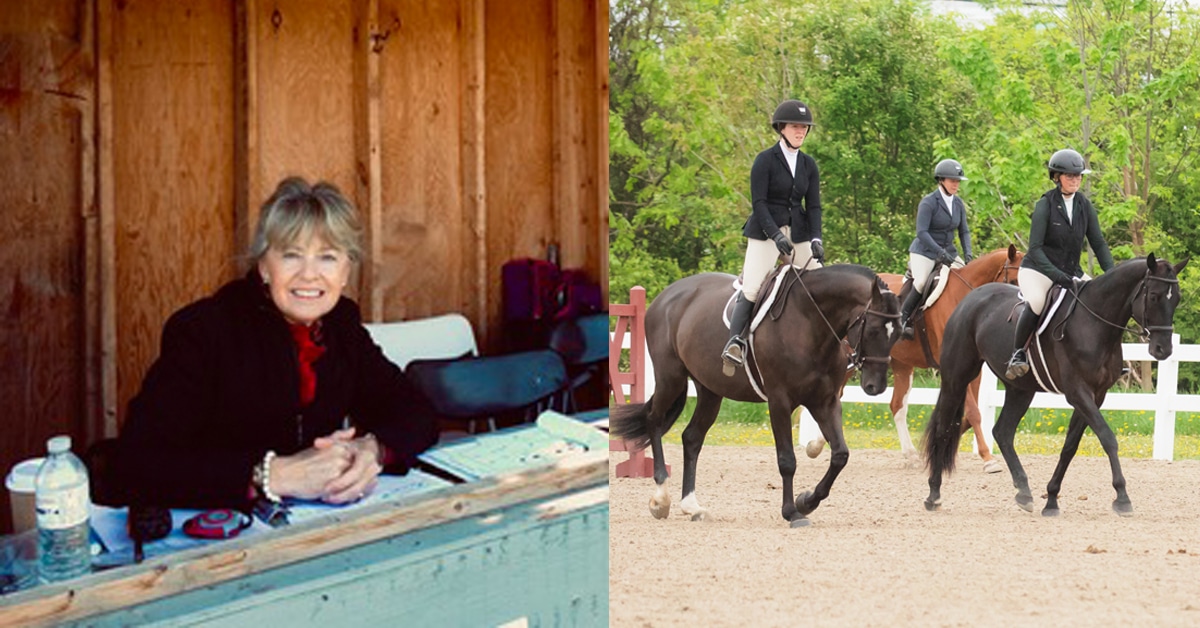Thirty-eight years ago there were no rules restricting the location of A-rated shows. However, in 1975 the Mileage Rule was created, codified as Rule 214.7, granting incumbent promoters of A-rated shows veto power over any competition within 250 miles to be held on the same dates as their own shows.
The major downside of the Mileage Rule is that it prevents competition, so there is no pressure on promoters to control costs for exhibitors. The only way the cost for engaging in our sport can be controlled is for there to be more competition between more shows. This will only happen if the USEF rewrites the rules to allow more promoters to enter the market.
As it stands today, regardless of a new promoter’s qualifications, experience or resources, incumbent promoters can prevent any direct competition within a 250-mile radius. Also, any promoter who held a date for a show in the previous year is automatically granted that date for the next year, as long as a renewal application is mailed to USEF before a specified deadline. This exclusivity stays in place for the year even if the promoter doesn’t hold a show. The promoter only relinquishes the date if the show is cancelled two years in a row.
Current promoters take further advantage of the Mileage Rule by entering into reciprocal waiver agreements with other current promoters, which have been renewed year after year. Starting in 1982, when the AHSA brokered a date dispute between them, leading promoters Horse Shows in the Sun (HITS) and Stadium Jumping, Inc. agreed to grant each other waivers to enable them to conduct simultaneous A-rated shows in the same market, without regard to the distance between them.
The AHSA’s successor, USEF, has facilitated implementation of this agreement by denying any conflicting date applications from other promoters pursuant to the provisions of the Rule. And if HITS or SJI neglected to submit an annual letter acknowledging the continuation of their mutual waiver agreement, it would routinely send them reminders to submit the letters, rather than freeing the dates as the Mileage Rule required.
The USEF actively enforces the Mileage Rule through disciplinary proceedings and sanctions, often based on complaints by the incumbent promoters. The only time the Mileage Rule has been relaxed was when the restriction was reduced to a 125-mile radius in certain Northeastern states in response to an antitrust challenge that a promoter filed in 1983 against AHSA in New York (Ashley Meadows Farm, Inc. v. American Horse Shows Association, Inc.).
In another important legal challenge, JES Properties Inc. v. USA Equestrian Trust, Inc., et al., JES sought to hold A-rated shows during the winter season in Florida. The defendant’s promoters had refused to provide Mileage Rule waivers to JES, so JES was effectively excluded for the entire winter season of A-rated shows.
The complaint alleged that the Mileage Rule and the defendant’s refusal to grant waivers constituted an attempt to monopolize the market under federal and Florida anti-trust laws. The promoter’s defense was that it enjoyed implied anti-trust liability under the Ted Stevens Olympic Amateur Sports Act. The trial Court and the 11th Circuit Court of Appeals agreed with the defendants.
Basically, the court determined that as the national governing body for the sport, the USEF has the right to impose the Mileage Rule as a way to ‘minimize conflicts in the scheduling of competitions and to develop interest and participation throughout the United States in their particular sport.’
But there is a problem with this stance, in my opinion. Just because the USEF has the right to regulate the sport, how does that give the organization the right to enforce rules that quash competition among promoters, which negatively impacts exhibitors as costs continue to rise?
Certainly one option for promoters who want to enter the market would be to consider another legal challenge. But wouldn’t it make more sense for the USEF to reconsider its stance, and think of ways to amend the Mileage Rule that can create more competition without causing irreparable harm to the current promoters?
As long as the USEF’s stance is that it simply says ‘no’ to requests for waivers of the Mileage Rule, little progress will be made. Meanwhile, costs will continue to go up in an atmosphere in which a small number of promoters can do whatever they want, with no regard to the needs and wishes of those who cover the costs of shows through their entry fees.
It’s time for constructive dialogue on this topic, involving both those who want to enter the market, and those who currently dominate it. Only then can we get to some solutions that will work for all involved.
The Latest










